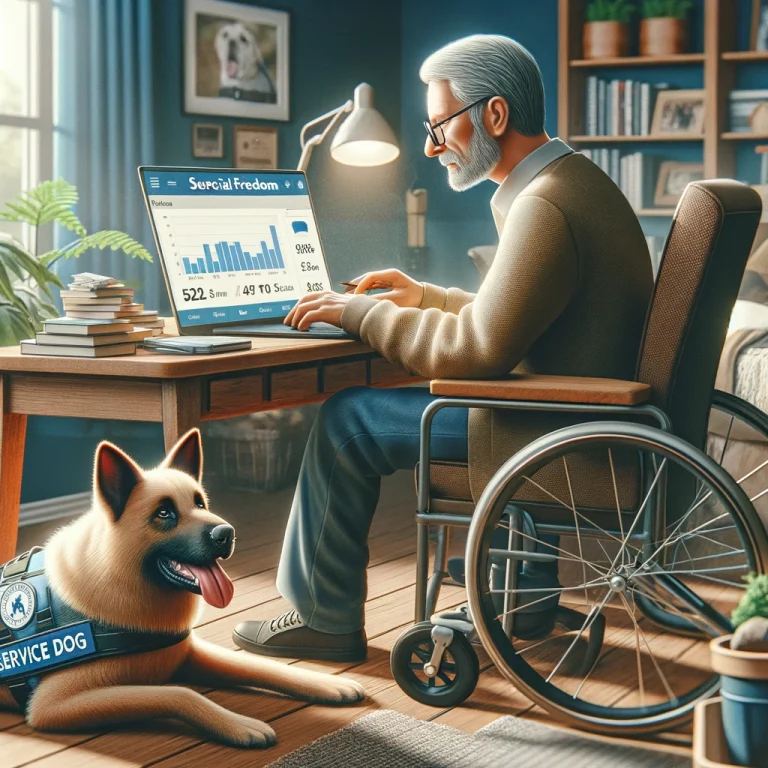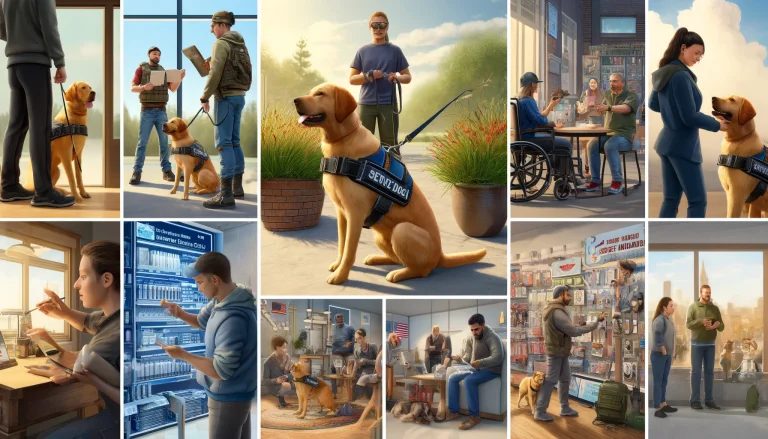Service Dog Eligibility: A Comprehensive Guide to Qualifying Conditions and Training Options
Have you ever wondered what disabilities qualify someone for a service dog? This guide dives deep into the realm of service dogs, particularly focusing on the service dog eligibility and training. Here, we will cover who qualifies, the importance of these canines, and how they dramatically enhance the quality of life for individuals with disabilities. We’ll also delve into self-training options and the resources available, including at ServiceDogOwners.com, ensuring you have comprehensive support throughout your journey.
Understanding Service Dog Eligibility
What is a Service Dog?
A service dog is more than a mere companion; it is a vital support system for many people. These dogs are trained to perform specific tasks to aid individuals with various disabilities. Whether it involves mobility assistance, alerting to medical issues, or providing emotional support, service dogs are equipped to handle diverse needs, transforming the lives of their handlers.
Defining a Service Dog’s Role
Disability assistance dogs cater to the specific needs of their handlers. Their training is meticulously designed to help people lead more independent lives. Whether navigating public spaces or offering comfort during distressing times, these dogs become indispensable companions.
Qualifying Conditions for Service Dogs
Eligibility for a service dog is detailed under the Americans with Disabilities Act (ADA), which specifies that individuals with physical, sensory, psychiatric, intellectual, or mental disabilities may qualify. Here’s a closer look at some of the conditions that can qualify one for a service dog:
- Mobility Issues: This includes conditions like paralysis, muscular dystrophy, and arthritis, where a dog can assist with movement or perform tasks that are physically challenging for the handler.
- Sensory Impairments: Individuals with impairments like blindness or significant hearing loss can benefit immensely from a service dog trained to guide or alert to sounds.
- Psychiatric Conditions: Those suffering from depression, anxiety, PTSD, and similar conditions often find that service dogs can provide essential emotional support and perform tasks that help manage their symptoms.
- Neurological Disorders: People with autism spectrum disorder, multiple sclerosis, and other neurological conditions may require a service dog to help with daily tasks, stability, or navigation.
The key factor in qualifying for a service dog is not just having a disability, but how the dog’s specific tasks are tailored to assist with that disability.
Importance of Pet Insurance for Service Dog Owners
When you have a service dog, their health and wellbeing are paramount. This is where pet insurance becomes invaluable. Such insurance helps cover the costs of veterinary care, which is crucial given the active role service dogs play and the potential health issues they may face.
Choosing the Right Service Dog Products
Equipping your service dog with appropriate products is not just a convenience—it’s essential. Items like specialized harnesses, custom leashes, and identification vests not only signal the dog’s role to others but also facilitate their tasks. At ServicePupSolutions.com, we offer a curated selection of high-quality service dog gear designed for durability and functionality.
The Option of Self-Training Your Service Dog
While many opt for professional training programs, self-training your service dog is also a viable option, especially when guided by credible resources. This can be a rewarding process, allowing for a deeper bond between you and your dog. For those considering this route, resources like ServiceDogOwners.com provide valuable guidance and support, helping you train your dog to meet specific assistance needs effectively.
Conclusion: The Transformative Impact of Service Dogs
Service dogs do more than help with daily activities; they enrich the independence and overall quality of life for people with disabilities. They provide companionship, emotional support, and a sense of freedom. Remember, eligibility for a service dog depends on individual needs and the specific tasks the dog can perform to assist with those disabilities.
As you explore the possibility of obtaining a service dog, don’t forget to visit ServicePupSolutions.com for more resources, including detailed guides on pet insurance and the best products for your service dog. A service dog isn’t just a pet; it’s a vital part of living a fuller, more independent life.
Navigating Your Service Dog Journey
Starting your journey with a service dog is a life-changing decision. Whether you’re gathering information on eligibility or exploring training options, understanding service dog eligibility and training is crucial. With this comprehensive guide, you’re equipped to recognize how a service dog could help you or your loved ones live a more empowered and independent life.
Searching for a way to boost your income while keeping your service dog by your side? Click here to start your side hustle and increase your earnings alongside your loyal companion.






